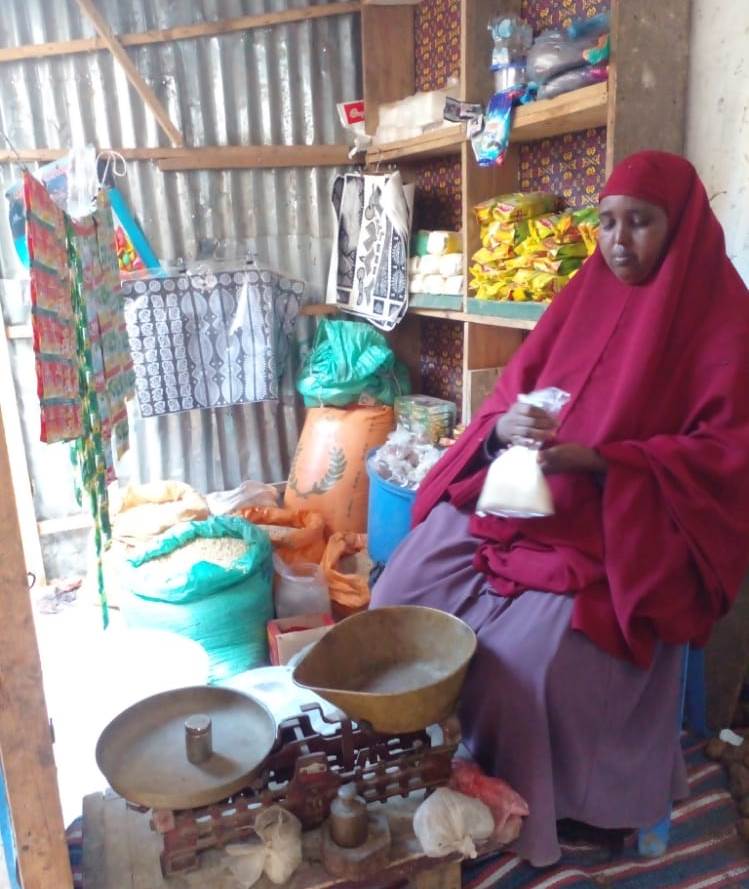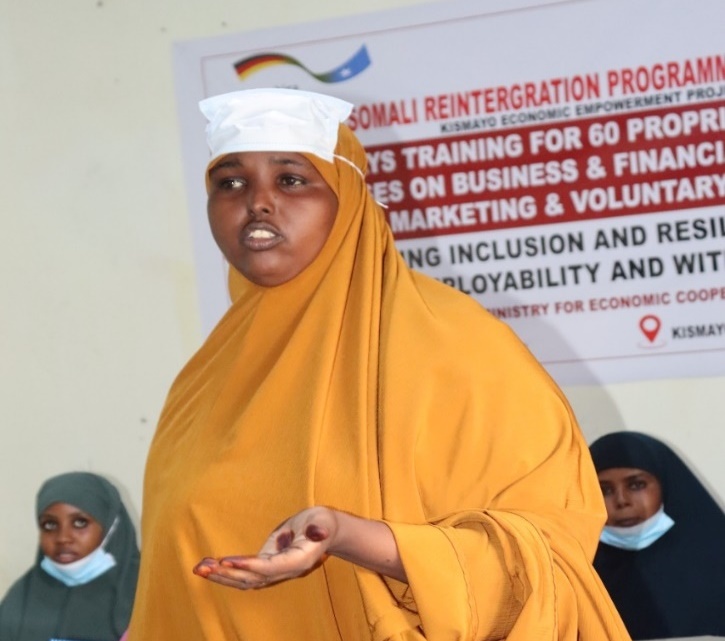Smallholder businesses owned by women in Somalia, face a variety of challenges which include cultural restrictions, illiteracy, inadequate business knowledge and skills, lack of capital and limited access to credit institutions that facilitate business growth or expansion. NAPAD continues to support the promotion of gender equality, inclusivity in business through women and youth economic empowerment, especially amid crises experienced today like drought, conflict and COVID 19 epidemic in Somalia. This is achieved through economic participation of vulnerable persons and supporting their access to knowledge, skills, and resources. We aim to improve the (self) employability of women and youth through training on entrepreneurship and enterprise skills and facilitating an enabling environment for smallholder businesses to thrive. By doing so, NAPAD promotes inclusivity in economic opportunities and contributes to reducing poverty.
Amina Adan Barqadle is a wife, a mother of five, a businesswoman, and an Internally displaced person living in Fanole, Kismayo. Amina owns a small retail shop in Suuqyare that provides her with little income to support her family. Since 2017, Amina had been struggling to run her shop since her profits are not adequate to meet the fixed costs of her business as well as sustain her family and had no training on basic bookkeeping. Amina was also unable to access loans to grow her business due to the terms set by the money lending institutions, and she also lacked the necessary knowledge and confidence to approach these institutions. In addition, to this, she had little experience in running a business and had no formal training in business management.

Through the Kismayo Women Economic Empowerment Project (KWEEP) implemented by Nomadic Assistance for Peace and Development (NAPAD) and with funding from the Deutsche Gesellschaft für Internationale Zusammenarbeit (GIZ), Amina is now experiencing the revival of her once failing business.
The KWEEP project’s objective is to support vulnerable persons in Kismayo and in particular the IDPs, returnees, and local community women to gain from knowledge transfer in business skills, value addition of products and services, creating linkages to credit through local microfinance institutions and support the growth of a saving culture among small business groups.
Amina and her compatriots underwent rigorous training on entrepreneurship, business skills, financial management practices, and were supported with in kind business kits in order to boost their businesses. NAPAD facilitated linkages to credit giving institutions where Amina was also able to take out a small loan from Amal bank that allowed her to increase her business stock and additionally diversify her business.

“I am glad that I’m now able to keep a record of my daily business transactions and have gained skills on how to manage my business better.” Reported Amina
Amina and her fellow beneficiaries also convened and formed 8 Voluntarily Savings and Loans Groups (VSL), where Amina is a vice-chairperson in one of these groups. The VSL groups have encouraged saving among its members and opened the opportunities of the members to access soft loans that they invest in their business. Additionally, the soft loans come in handy in times of household emergencies.
“I thank NAPAD for their support. Through their guidance, I have been able to access small loans which I have used to purchase more goods for my business.” Amina reported
